In many regular expression search and replace systems, you can refer to a parenthesized group in the regular expression in the replacement, using \1, \2, etc. to refer to each successive group. So for example, in sed you could do:
sed -e 's/\(^[\t ]*\)\*/\1-/'
I'm not sure if Keyboard Maestro gives you that option. It mentions that it uses ICU regular expressions; if it also uses their replacement options, then you can use $1, $2 etc. to refer to the replacement.
If not, all is not lost. You can use a lookbehind assertion to match the sequence of whitespace before the the asterisk, without including the asterisk as part of the match; then just use a single dash as your replacement:
Search for: (?<=^[\t ]*)\*
Replace with: -
